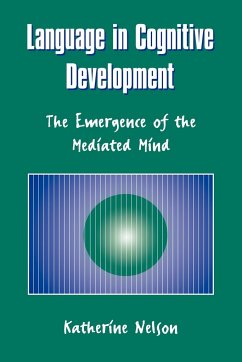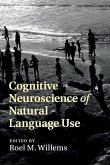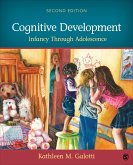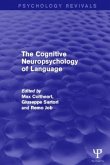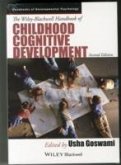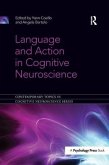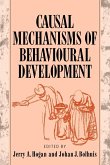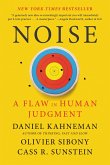Contemporary study of language and cognition in infancy and early childhood has received considerable, well deserved attention. However, little effort has been directed to the means by which language becomes a cognitive and communicative tool, as well as what the full implications of this development may be. This book highlights a transition from the study of language and cognition to that of language in cognition. It presents an integrative theory of cognitive development, emphasizing the important role that language plays in taking the two to five year old child to new levels of cognitive operations in memory, forming concepts, categories, processing narratives, and understanding other people's intentions. Biological evolution is considered the source of both language and culture but it is argued that qualitatively different modes of thinking and knowing emerge therefrom.
Table of contents:
Part I. Perspectives: 1. Language, cognition and culture in developmental perspective; 2. Emergence of human minds in evolution and development; 3. Evolution and development of the hybrid mind; Part II. Developing Representational Systems: 4. Early cognition: episodic to mimetic childhood in a hybrid culture; 5. The emergence of mediating language; 6. Memory in early childhood: the emergence of the historical self; 7. The emergence of the storied mind; Part III. Developing Conceptual Systems: 8. The emergence of the paradigmatic mind; 9. The emergence of the temporal mind; 10. The emergence of the projective mind; Part IV. Conclusions: 11. Collaborative construction of the mediated mind.
The book addresses issues in cognitive development in early childhood, stressing the central role that development of language plays in taking the child to new levels of cognitive operations in memory, forming concepts and categories, in using concepts of time, processing narratives, and understanding other people's actions.
This book discusses the role of language as a cognitive and communicative tool in a child's early development.
Table of contents:
Part I. Perspectives: 1. Language, cognition and culture in developmental perspective; 2. Emergence of human minds in evolution and development; 3. Evolution and development of the hybrid mind; Part II. Developing Representational Systems: 4. Early cognition: episodic to mimetic childhood in a hybrid culture; 5. The emergence of mediating language; 6. Memory in early childhood: the emergence of the historical self; 7. The emergence of the storied mind; Part III. Developing Conceptual Systems: 8. The emergence of the paradigmatic mind; 9. The emergence of the temporal mind; 10. The emergence of the projective mind; Part IV. Conclusions: 11. Collaborative construction of the mediated mind.
The book addresses issues in cognitive development in early childhood, stressing the central role that development of language plays in taking the child to new levels of cognitive operations in memory, forming concepts and categories, in using concepts of time, processing narratives, and understanding other people's actions.
This book discusses the role of language as a cognitive and communicative tool in a child's early development.

